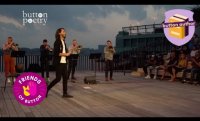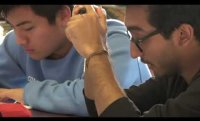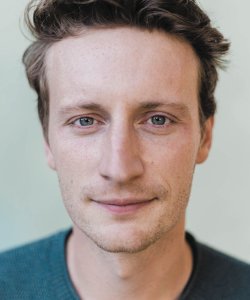Are you an established writer developing a major creative project? Or perhaps an emerging or debut poet seeking to place your chapbook or full-length collection? Read on to learn about two prestigious fellowships and three poetry contests with application deadlines between September 14 and September 19. Both fellowships are open to poets, fiction writers, and nonfiction writers and offer $50,000 or more with no entry fee. All prizes awarded for poetry collections offer publication and $1,000 or more. We hope you share your work!
Harvard University
Radcliffe Institute Fellowships
Fellowships of $78,000 each, office space at the Radcliffe Institute, and access to the libraries at Harvard University are given annually to poets, fiction writers, and creative nonfiction writers to allow them to pursue creative projects. Fellows, who are expected to reside in Boston during the fellowship period, which lasts from September through May, also receive $5,000 to cover project expenses. Poets who have published a full-length collection or at least 20 poems in magazines or anthologies in the last five years and who are in the process of completing a manuscript are eligible. Fiction and creative nonfiction writers who have published one or more books, who have a book-length manuscript under contract for publication, or who have published at least three shorter works are eligible. Writers who are graduate students at the time of application are not eligible. Deadline: September 14. Entry fee: None.
Lightscatter Press
Poetry Prize
A prize of $1,000, 25 author copies, and multimodal publication by Lightscatter Press is given annually for a poetry collection written by an emerging writer. Hybrid works and multilingual texts that combine English with another language are eligible. Eduardo C. Corral will judge. Deadline: September 15. Entry fee: $30.
Finishing Line Press
New Women’s Voices Chapbook Competition
A prize of $1,500 and publication by Finishing Line Press is given annually for a poetry chapbook by a writer who identifies as a woman and has not yet published a full-length collection. English translations of poems originally written in another language are accepted. Leah Huete de Maines will judge. Deadline: September 15. Entry fee: $20.
University of Wisconsin Press
Brittingham and Felix Pollak Prizes
Two prizes of $1,500 each and publication by University of Wisconsin Press are given annually for poetry collections. Additional finalists will be published in the press’s Wisconsin Poetry series. Deadline: September 15. Entry fee: $28.
John Simon Guggenheim Memorial Foundation
Writing Fellowships
Fellowships of approximately $50,000 each are awarded annually to poets, fiction writers, and creative nonfiction writers on the basis of “exceptional creative ability.” Citizens and permanent residents of the United States and Canada with a “significant and appropriate record” of publication are eligible. Deadline: September 19. Entry fee: None.
Visit the contest websites for complete guidelines, and check out the Grants & Awards database and Submission Calendar for more contests in poetry, fiction, creative nonfiction, and translation.










